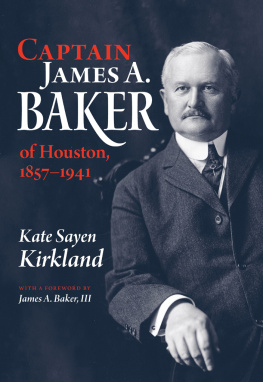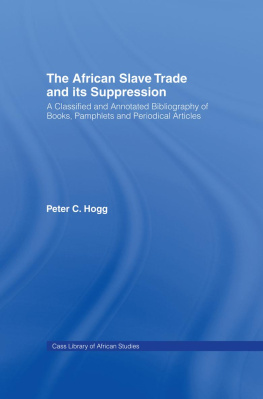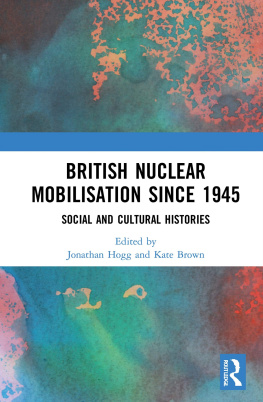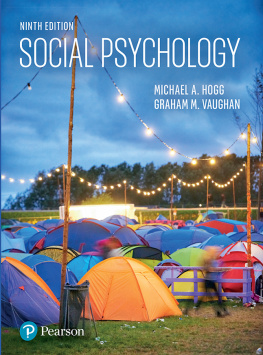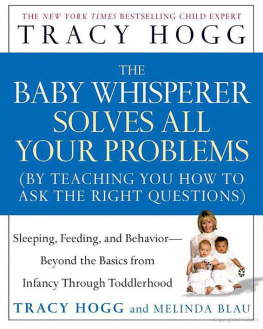Kate Sayen Kirkland - The Hogg Family and Houston: Philanthropy and the Civic Ideal
Here you can read online Kate Sayen Kirkland - The Hogg Family and Houston: Philanthropy and the Civic Ideal full text of the book (entire story) in english for free. Download pdf and epub, get meaning, cover and reviews about this ebook. year: 2009, publisher: University of Texas Press, genre: Home and family. Description of the work, (preface) as well as reviews are available. Best literature library LitArk.com created for fans of good reading and offers a wide selection of genres:
Romance novel
Science fiction
Adventure
Detective
Science
History
Home and family
Prose
Art
Politics
Computer
Non-fiction
Religion
Business
Children
Humor
Choose a favorite category and find really read worthwhile books. Enjoy immersion in the world of imagination, feel the emotions of the characters or learn something new for yourself, make an fascinating discovery.

- Book:The Hogg Family and Houston: Philanthropy and the Civic Ideal
- Author:
- Publisher:University of Texas Press
- Genre:
- Year:2009
- Rating:4 / 5
- Favourites:Add to favourites
- Your mark:
- 80
- 1
- 2
- 3
- 4
- 5
The Hogg Family and Houston: Philanthropy and the Civic Ideal: summary, description and annotation
We offer to read an annotation, description, summary or preface (depends on what the author of the book "The Hogg Family and Houston: Philanthropy and the Civic Ideal" wrote himself). If you haven't found the necessary information about the book — write in the comments, we will try to find it.
The stirring story of the legendary Hogg familys philanthropic contributions to Texas, and the pivotal trends of urban growth and civic support exemplified in their lives.
The Hogg Family and Houston: Philanthropy and the Civic Ideal — read online for free the complete book (whole text) full work
Below is the text of the book, divided by pages. System saving the place of the last page read, allows you to conveniently read the book "The Hogg Family and Houston: Philanthropy and the Civic Ideal" online for free, without having to search again every time where you left off. Put a bookmark, and you can go to the page where you finished reading at any time.
Font size:
Interval:
Bookmark:
The Hogg Family and Houston
Focus on American History Series
Center for American History
University of Texas at Austin
Edited by Don Carleton
Philanthropy and the Civic Ideal
Kate Sayen Kirkland

Copyright 2009 by the University of Texas Press
All rights reserved
Printed in the United States of America
First edition, 2009
Requests for permission to reproduce material from this work should be sent to
Permissions, University of Texas Press, Box 7819, Austin, TX 787137819.
www.utexas.edu/utpress/about/bpermission.html
Library of Congress Cataloging-in-Publication Data
ISBN 978-0-292-79377-4 (library e-book); ISBN 978-0-292-74846-0 (individual e-book)
Kirkland, Kate Sayen, 1944
The Hogg family and Houston : philanthropy and the civic ideal / Kate Sayen Kirkland. 1st ed.
p. cm. (Focus on American history series)
Includes bibliographical references and index.
ISBN 978-0-292-71865-4 (cloth : alk. paper)
1. PhilanthropistsTexasHoustonBiography. 2. Hogg family. I. Title.
HV99.H7K57 2008
3617409227641411dc22 2008009092
For my father, James Conyers Sayen, 19151988, who taught me
to love history and showed me by his fine example the value of citizen
involvement in our nations many-layered communities.
An efficient system of public schools is the growth of years, the work of ability and experience, and above all depends on the pride and generosity of a progressive, enlightened people.
James Stephen Hogg, January 21, 1891
All thoughtful citizens, now-a-days, accept the dictum of professional planners that a growing city must have a comprehensive plan, the sooner the better.
William Clifford Hogg, 1925
Throughout the ages man has sought to communicate his richest experiences to his fellowman through various forms of art. This mysterious godlike creative impulse, mankind has translated into the universal language of order and harmony.
Ima Hogg, November 1952
We find a distinct resemblance between the life and practices of a family and the life and practices of a nation.
Mike Hogg, 1940
A photo section follows
Ten years after leaving public service, James Stephen (Jim) Hogg, the first native-born governor of Texas (18911895), moved his law practice and business headquarters from the states capital in Austin to Houston, the states fastest-growing commercial center. Fueled by oil discoveries in surrounding counties and famous for a leadership ethos that welcomed newcomers and their aspirations, Houston had developed a business infrastructure of banks, railroads, and port facilities that encouraged economic expansion. Investors in the infant oil industry like partners Jim Hogg and Joseph Cullinan, whose Texas Company became Texaco after the governors death, saw Houston as a good location for corporate headquarters because the city also was noted for its attractive residential neighborhoods and stimulating civic life.
The governor did not live long enough to influence Houstons development, but he left a legacy that shaped the emerging metropolis in fundamental ways when three of his four children, Will, Ima, and Mike, made Houston their permanent home after their fathers death in 1906. For seventy years the fortunes of the siblings and their adoptive city were entwined. Taking seriously the lessons of their parents, Will, Ima, and Mike joined other far-sighted Houston families to develop a vision of the ideal city, and they invested in institutions that would fulfill their dreams. Until Ima Hoggs death in 1975, their imaginative approaches to commerce, government, and philanthropy allowed them to confront urban challenges and demonstrate the diverse ways in which private resources can be used to promote the public good and sustain a communitys quality of life.
When Will, Ima, and Mike settled in Houston, they brought with them strong family values and a heritage of commitment to community service. Jim and Sallie Stinson Hogg taught their children that public service was every citizens duty, that strong families made stable communities, and that public education at public expense was essential to democracy. They introduced their children to music, art, and history and stressed humanitarian values of concern for others, appreciation of beauty, and stewardship of nature. Governor Hogg transmitted his reformist zeal to Will and Ima, who as children accompanied him on trips to schools, prisons, and mental asylumsexpeditions that made indelible impressions on their young minds. The governor, an early progressive, believed the social, economic, and political problems of modern life could be identified and should be solved with proper application of analysis and expert advice. Toward the end of his life, the governor spent hours talking with his children about ways to make life better for all Texans.
Like many progressives who reached maturity before World War I, the Hogg siblings believed social change could be molded and community life improved. Their civic activism was a conscious moral response to industrial growth and urban expansion. Their can-do spirit was informed by strong patriotism and pride in their adopted hometown, a boosterism reflected in the newspapers and promotional materials of the era. They understood that public service through government participation, economic development through responsible business practice, and civic leadership through private philanthropy were all necessary components of healthy community life. The Hoggs invested in Houstons primary industriescotton, real estate, and oil; they served on local government commissions and held elective office; but they made their most lasting impact as philanthropic entrepreneurs who built civic institutions that have long outlived them. Through these institutions, the Hoggs heeded their parents admonitions to nurture the community that nurtured them; they empowered fellow citizens to pursue happiness; and they created the Hogg Foundation in the 1930s to be a transformational agent that would prevent, not just palliate, social ills.
Performers know activity on stage is meaningless without an audience. The Hoggs responded to Houstons ethos of progress with ideas that, in turn, shaped the drama of urban expansion in the Bayou City. Acting in concert with other forward-looking reformers, Will, Ima, and Mike inspired a responsive citizenry receptive to pleas for improvement and called upon friends in the community to help shape and explain Hogg family initiatives. Because the Hoggs identified their personal triumphs with their citys destiny, any analysis of their urban ideal perforce includes numerous city scenes and supporting players. Both the Hoggs opportunity for civic activism and its success can be explained only by placing the familys work in a context that includes the advocacy of fellow reformers and a portrait of the city itself.
This story of individual efforts to improve the quality of life in Houston has not resonated with historians. Journalists may praise public-private alliances Houstonians forge to develop cultural and social service institutions for the city, but scholars too often disparage what they see as an overly cozy relationship among business leaders, local government officials, and philanthropists in shaping the community. Suspicious that the power elites generosity toward fellow citizens merely masks venal motives, academics have failed to illuminate the synergistic nature of public-private interaction that was particularly powerful during the Hoggs lifetimes. Scholars also have ignored the idealism that often prompts individual action and suggest instead that civic leaders simply wish to impose social and cultural controls on an unsuspecting citizenry. The Hoggs dedication to service defies such analysis. They showed a concern for minority voices that was exceptional in their time; they focused attention on education and mental health care to empower fellow citizens; and they urged businessmen to be dutiful civic actors. Like the industry entrepreneurs who chose Houston for company headquarters, the Hoggs used their philanthropy to introduce trend-setting innovations: no museum or symphony existed in Texas when the Hoggs began their advocacy for these institutions; little attention was paid to positive mental health care when the Hoggs established the Child Guidance Center and the Hogg Foundation for Mental Health; few people funded higher education for black citizens or insisted that minority groups be welcomed at cultural events; almost no one understood how material culture could tell Americas story when Ima Hogg began collecting Americana and art of the Southwest.
Next pageFont size:
Interval:
Bookmark:
Similar books «The Hogg Family and Houston: Philanthropy and the Civic Ideal»
Look at similar books to The Hogg Family and Houston: Philanthropy and the Civic Ideal. We have selected literature similar in name and meaning in the hope of providing readers with more options to find new, interesting, not yet read works.
Discussion, reviews of the book The Hogg Family and Houston: Philanthropy and the Civic Ideal and just readers' own opinions. Leave your comments, write what you think about the work, its meaning or the main characters. Specify what exactly you liked and what you didn't like, and why you think so.

